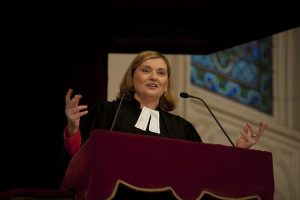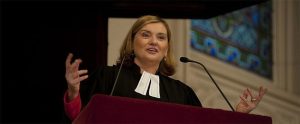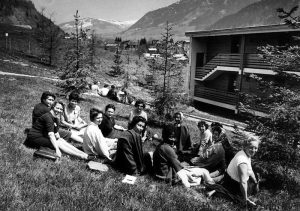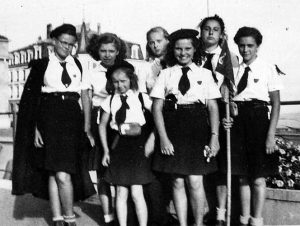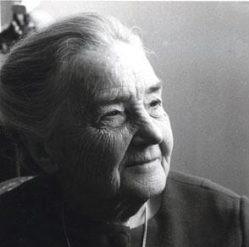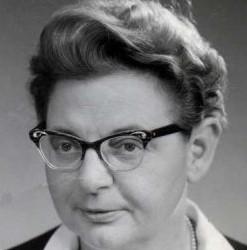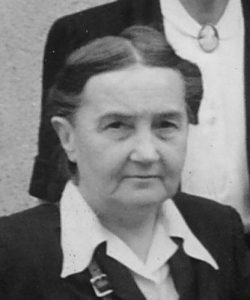Obstacles and prejudices
The first ordinations in the 30s were single cases. The principle was to be discussed only in the 50s as society was evolving and changing. In synods the subject was not considered mature enough for a long time ; in the French Reformed Church the debate was finally opened in 1964, to be closed two years later issuing the following statement “that women can be expected, at the same level as men, to be granted a ministry in the Church.”
Celibacy was still considered a requirement – What would they be able to do if they had children ? Some feared that if women were ordained, men would be deterred from pastoral calling ; they also feared that it would hinder the ecumenical dialogue women would not be able to sustain.
Fully-fledged pastors
The celibacy clause was removed in 1968 in the Reformed church of Alsace and Loraine (ERAL), and in 1970 in the Augsburg Confession Church of Alsace and Lorraine (ECAAL). A decree dated 6 April 1970 agreed that women “be given pastoral responsibilities on the same terms as male applicants” but stipulated that they “will be appointed to parishes with two or several pastoral positions” in both churches. As fewer and fewer people attended church services, fewer and fewer churches required more than one pastor, so that women pastors often were alone in parishes.
Well trained in Theology faculties and during internships, women’s self-confidence increased. Problems most often stemmed from Church councils, namely because of die-hard prejudices, the old stories about authority, but women parishioners often applauded. It took time for women to be considered as ministers on a par with men. As in all occupations, access was more difficult than for men, and they were judged more severely.
The end of the century
It already was the third generation of women pastors. In 2000 there were :
- Church of the Augsburg Confession of Alsace Lorraine (ECAAL) – 52 women out of 230 active pastors (22.61%). 38 were married, 11 of which to pastors.
- Reformed Church of Alsace Lorraine (ERAL) – 15 women out of 51 active pastors (29.41%). 11 were married, 5 of which to pastors and 2 to theology professors.
- Lutheran evangelical Church of France (EELF) – 18 women out of 58 active pastors (31.03%). 2 were single, 16 were married, 7 of which to pastors.
- Reformed Church of France (ERF) – 106 women out of 489 active pastors (21.67%). 32 were single, 74 were married, 7 of which to pastors.
- Free theology faculties (IPT since 1972). Paris faculty in 1960 – 84 students of which 8 women (9.52%). In 2000 – 136 students of which 54 women (39.70%).
- Montpellier faculty in 1960 – 64 students of which 5 women (8%). In 2000 – 209 students of which 95 women (45.5%).
- Marc Bloch/Strasburg University. In 1960, 121 students of which 9 women (7.43%). In 2000, 218 students of which 82 women (37.61%).
Mesdames pastors
They were generally married, and had often met their future spouse at the theology faculty, which made it difficult for the Churches to find positions for couples. They were mothers, which made everyday life complex. That is why they did not take part in as many committees as their male counterparts. Every type of position was available to them in faculties, chaplaincies (even in the army), specific ministries ; ecclesial responsibilities, however, they were not granted as easily, except to Thérèse Klipfel who, as President of the Church (ERAL), received the pope in Strasburg in 1982.
One remarkable example was Elisabeth Parmentier, pastor in the ECAAL, a theologian, professor at the faculty in Strasburg, and president of the Luenberg Communion, but also a wife and mother.
What they changed
In a Christian world dominated by males since its creation, women pastors brought their specific feminine sensitivity to their ministry – which was then a current trend in our society. The writings of some women theologians contributed to influencing liturgies too.
Women within the pastoral realm hastened the secularisation phenomenon, which became prevalent at the end of the century. Being more accessible to their parishioners than men, women were respected for themselves rather than for the robe they did not always wear, and also for their activity.
The other Protestant churches
In evangelically oriented churches which are part of the French Protestant Federation, the topic of women pastors was discussed – by the Baptists, or rejected by Pentecostal churches. The FEEB (Federation of Baptist Evangelical Churches) was split because their congregational structure enabled each Church (called major) to admit women ministers. The subject was on the agenda synod after synod, but they still have not made a final decision, maybe because authority was traditionally conferred to a man. But women students are very numerous in evangelical faculties.
The Independent Evangelical Reformed Churches (EREI) debated over the question within the main question of pastor’s ordination. In March 2004, Corinne Fines was the first woman pastor in the EREI. Pentecostal Churches (Church of God, Gipsy Evangelical Mission, apostolic Church…) referred to the scriptures to avoid the question.
One exception was a Parisian Baptist church, the Tabernacle church in the 18th arrondissement, where there actually was a woman pastor Madame Madeleine Bloch Blocher-Saillens, who pursued her husband’s work between 1930 and 1952. That church was part of the Alliance of French Free Baptist Evangelical Churches, not part of the French Protestant Federation.
Though access to pastoral ministry for women was initiated in Scandinavia, Germany and Switzerland before it came to France in Lutheran and Reformed Churches, the movement will certainly spread to protestant minorities, who claim to be part of the Reform in our enlarged Europe. The future will tell whether Baptist and Pentecostal churches finally decide to go along with our society’s evolution.

